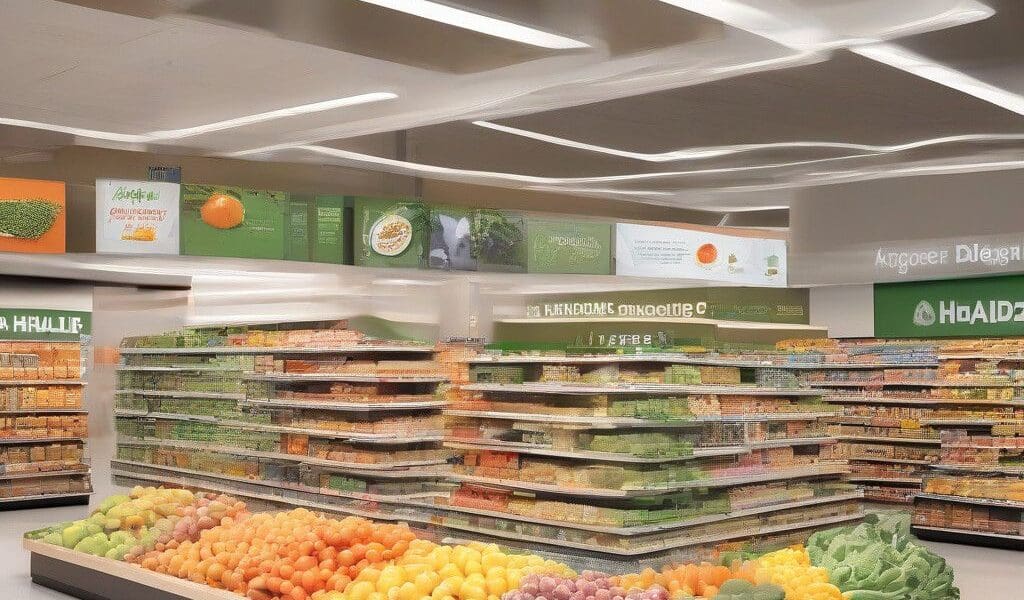Welcome to The Friday 5, Progressive Grocer’s weekly roundup of crucial news and trends in the food retail industry. In this edition, we will explore significant developments affecting major players, insights into strategic growth initiatives, and emerging market shifts that promise to impact retailers.
1. Kroger-Albertsons Trial Heats Up
Courtroom developments are at the forefront as the trial aimed at blocking the proposed $24.6 billion merger between Kroger and Albertsons continues to capture attention. The latest testimonies suggest a focus on competition issues, the divestiture package, and labor implications. Kroger and Albertsons argue against the lawsuit by the Federal Trade Commission (FTC), stating that the FTC’s perspective is limited to traditional supermarkets. They point to the evolving grocery landscape, which now includes club stores, big box retailers, and online competitors like Amazon.
Albertsons’ COO Susan Morris has testified to clarify the divestiture package, asserting a commitment to innovation and distinct market positioning. “I don’t want to run another mini-Kroger or a mini-Albertsons. This is a chance to run something distinct,” she emphasized. With closing arguments slated for September 17, stakeholders eagerly await the decision that could shape the grocery sector for years to come.
2. Ahold Delhaize’s Growth Strategies Explained
Another focal point is Ahold Delhaize’s “Growing Together” strategy, unveiled during the company’s 2024 Strategy Day in the Netherlands. This blueprint sets forth ambitious growth and investment plans through 2028, emphasizing six strategic priorities: building a thriving workplace, fostering healthy communities, enhancing customer experiences, ensuring product trust, and driving customer innovation.
Ahold Delhaize aims to streamline operations by closing at least 32 underperforming Stop & Shop stores in the Northeast. CEO JJ Fleeman has highlighted the importance of leveraging local brand strengths and creating integrated shopping experiences that foster loyalty. The roadmap includes enhancing e-commerce and retail media efforts, a move that signals a robust future for Ahold Delhaize’s U.S. banners.
3. Bankruptcy for Big Lots
In the retail sector, Big Lots Inc. made headlines this week as it initiated voluntary Chapter 11 bankruptcy proceedings. This struggling discounter is set to undergo a significant restructuring, entering into a sale agreement with Nexus Capital Management LP, which will acquire substantially all of its assets and ongoing business operations.
Bruce Thorn, President and CEO of Big Lots, stated the importance of maintaining a focused footprint while optimizing store operations. Despite the majority of stores being profitable, he noted a need for efficiency to maintain competitiveness in an aggressive retail environment. This restructuring presents an opportunity for Big Lots to refine its strategy and streamline operations amid shifting consumer preferences.
4. Amazon Doubles Down on Physical Grocery
Amazon continues to expand its presence in the brick-and-mortar grocery sector as it launches the Amazon Saver private label line, now available both online and at Amazon Fresh stores. This private label features essential grocery items priced under $5, enticing value-conscious shoppers.
Additionally, Amazon offers discounted prices on over 3,000 grocery products for Prime Members, marking a significant increase from previous offerings. Members can benefit from weekly discounts on a rotating selection of household staples. Recent store openings in California and the Chicago area underscore Amazon’s commitment to enhancing the shopping experience with innovative store designs and an expansive range of products.
5. Grocery Tourism and Other Store Experiences
The buzz surrounding “grocery tourism” remains strong, with retailers leveraging this trend to attract out-of-town visitors. As noted by R.J. Hottovy, head of analytical research at Placer.ai, sales trends indicate that tourist areas see a marked increase in foot traffic to grocery stores during peak seasons. This phenomenon has led to a heightened focus on local products, enabling retailers to cater to diverse customer bases.
Additionally, the introduction of innovative checkout experiences, like ALDI’s automatic checkout system powered by Grabango, stands out as a game-changer in enhancing customer satisfaction. This technology aims to streamline the shopping experience, significantly reducing waiting times at checkout.
In conclusion, the food retail landscape is undergoing significant transformation, driven by legal challenges, strategic growth initiatives, and evolving consumer preferences. The upcoming weeks will be pivotal, as stakeholders closely monitor the outcomes of high-profile trials and restructuring efforts that will undoubtedly shape the future of grocery retail.












